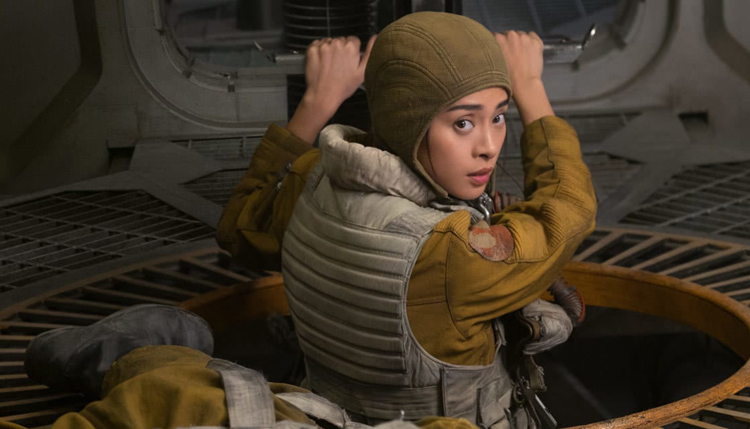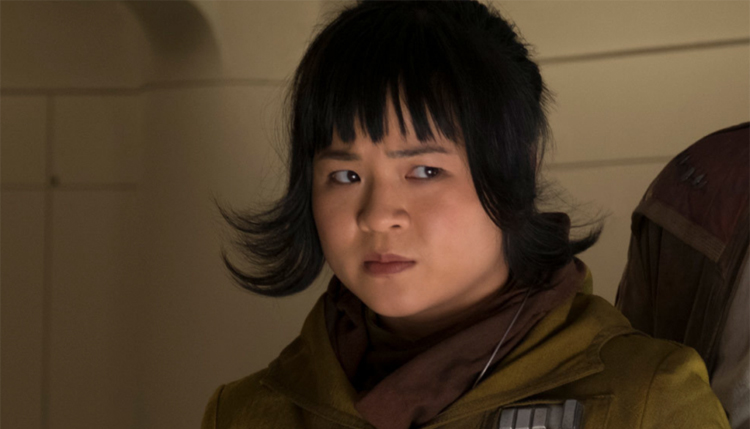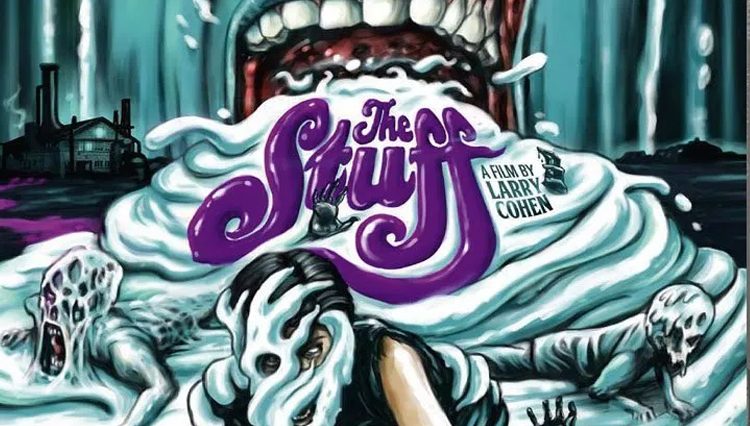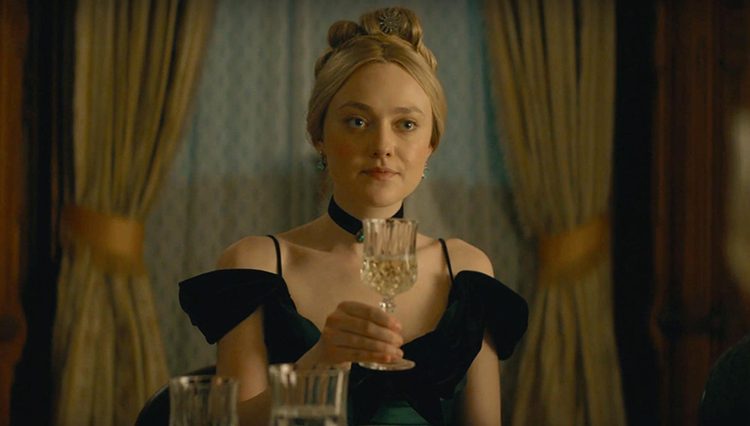
In the initial attack on the Dreadnought, a slew of bombardiers hangs in starry space, waiting to drop magnetic bombs. Even with the improbable domination of the First Order’s ships over the handful of X-Wing Fighters in light of the Resistance’s recent success in the destruction of the Starkiller, one scrappy, plucky little bomb-dropper manages to avoid extravagant annihilation. Manning (or “womanning”) that heavy bomber is Paige Tico, essentially a foot-note or plot-device in human form, designed to catalyze a more important character’s effort to save the Resistance, or die trying. Of course, we’re talking about Rose Tico, a character so hated, she single-handedly erases all the past transgressions of Jar-Jar Binks, Natalie Portman, Hayden Christensen, and the Ewoks combined.
Why is Rose Tico so hated? Where do I start? The two sisters: Rose and Paige. Paige is the older sister. Paige joins the Resistance and brings her younger sister along for the ride, escaping from some impoverished hell-hole of a planet. As if nobody could be motivated to make social or political change without experiencing poverty, starvation, or homelessness. Remember Leia was a Princess and a Senator (“She’s rich…”) and Padme was a Queen and a Senator. Bail Organa was the leader of a planet. Rebellions need to be bank-rolled, folks. I understand when good people want to get out of desperate situations and improve their stations in life, but statistics don’t bear it out; chances are if you grow up poor and angry, you’re going to die poor and angry, but when “hope” is the vessel for freedom, we can’t let facts get in the way of our fantasy.
At first glance, Paige is beautiful, a work of art, unrealistically made-up (with perfect lipstick application) but beautiful nonetheless. We get only five seconds of her in the movie since she sacrifices her life to drop those magnetic bombs on the Dreadnought. By all indications, Paige should be the hero of this operation, but she’s not even in the ground before we’re introduced to her little sister, Rose. This is Rian Johnson’s Obi-Wan moment, where Kenobi sacrifices himself to light a fire under Luke so that he can become the hero of Lucas’ story. Rose, by contrast, is pudgy with a flat chubby face, and terrible hair. Rose is every fat, unattractive kid you knew in high school who slimmed down the summer months and became prom queen. Rose is a movie invention and a female fantasy. The actress who plays Rose, Kelly Marie Tran, is, in reality, a much more beautiful and attractive young woman than the character she is forced to play here. If we were to examine Rose in the movie, based on our current trends, we would place her in the context of “social justice,” a bizarre and unsettling conglomeration of virtue, entitlement, protest, and self-hatred.
In a back-handed way, Rose represents the social justice sub-set: an angry, unattractive woman determined to become a hero in place of her much more beautiful sister, dismantling the shadow of Paige obscuring the galaxy’s view of her as a feminine messiah. The Rebellion seemed to be aware of her zealous anger. While Paige was gunning for the bombardiers, Rose was given the crappiest detail of any member of the Resistance. Her job, before she decided to become a hero, was to shoot and detain deserters. I’m assuming this is an all-volunteer Resistance on the losing end of lengthy and destructive conflict. Deserters don’t want to be involved. I can imagine guarding the escape pods so that the important people can escape if they want, but punishing deserters? Worst job in the world. Worse than sanitation. What this tells us is that Rose is the most useless member of the Resistance, or that the Resistance views her as useless. When the New Republic finally comes to power, Rose will most likely be elected Dogcatcher, or more likely, Assistant to the Dogcatcher.

Rose has problems. She’s a character equipped with problems that Rian Johnson (the writer/director) does not want to expose. Imbued with irrational, sphereless hatred, she must make her mark before the final reel. Johnson wants her to be the confident masculine hero of an action/adventure enterprise. Tran, because of her years and gender, would be incapable of providing that hero. She must be ridiculously, unrealistically brave. She must save the day and get the guy. Finn, in this case. Though we, as the audience, see no spark between them, see no chemistry other than working together (and not all that well) for a common cause. About two-thirds of the way into the movie, we realize that Finn is to be conquered, that Finn is the target. He’s a piece of meat hanging in a butcher shop window, and Rose is licking her lips gazing at it. Finn is the object.
Hence, Rosie embodies the worst characteristics of both the Social Justice and Radical Feminist movements combined. To see an actor truly invested in the dialogue and action he or she is given is to watch a truly remarkable performance. For example, I would provide Sigourney Weaver in the Alien movies or Uma Thurman in Kill Bill. To see an actor force-fed dialogue in order to fulfill a system of social-political checkpoints is excruciating. It’s a form of psychological torture for the performer as well as her audience. It becomes less entertainment and more a form of propaganda, and Kelly Marie Tran has nothing to do with the discussion. She’s an actress, contracted to play a part, but when her particular Twitter storm erupted in June of 2018, she took it personally. This wasn’t constructive criticism. It was a personal attack.
We get into a weird area where criticism is not to be permitted provided a portion of the cast is considered some form of a minority. A new equation is calculated: if you do not like this product, this movie, this book, this television series, and this product has a “majority” of minorities, it is because you are racist or sexist or both. Since the beginning of movies, filmmakers have long sought to even the playing field against critics and audiences. Filmmakers were required to be “good sports” and take their licks. It has now become possible for a filmmaker to attack his or her audience when bad reviews and scores surface. Witness Rian Johnson and his “drooly little manbaby butt” comment regarding Star Wars fans who rated The Last Jedi poorly. Filmmakers would never dare speak this way to a paying audience a decade ago (it’s considered bad form), but Johnson gets a pass because of his “good intentions.” If you have good intentions, damn the consequences. The same can be said for The Last Jedi.
Of course, this is strictly my opinion, but I’m very perceptive.




